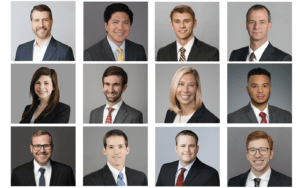by Matt Bisanz, Kelly Truesdale, Jeffrey Taft, and Andy Rosenman

Left to right: Matt Bisanz, Kelly Truesdale, Jeffrey Taft, and Andy Rosenman (Photos courtesy of Mayer Brown LLP)
The Federal Deposit Insurance Corporation (“FDIC”) recently reminded financial institutions of sweeping changes to longstanding restrictions on the ability for insured depository institutions, bank holding companies (“BHCs”) and other similar institutions to hire or retain individuals with certain criminal records.[1] In this Article, we discuss the background to the changes to Section 19 of the Federal Deposit Insurance Act (12 U.S.C. § 1829) (“Section 19”) and why they matter for these financial institutions.





